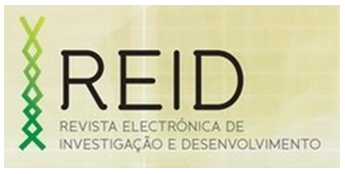A CATOLICIDADE NA UNIVERSIDADE CATÓLICA DE MOÇAMBIQUE
Rafael Sapato
DOI:
https://doi.org/10.70634/reid.v1i5.52Palavras-chave:
universidade, catolicidade, identidade, Magistério Eclesiástico, university, catholicity, identity, Ecclesiastical, MagisteriumResumo
O presente estudo visa realizar um primeiro exame sobre a catolicidade na Universidade Católica de Moçambique (UCM). Procura examinar a presença ou não das caraterísticas duma Universidade Católica preconizadas pela Constituição apostólica Ex Corde Ecclesiae de João Paulo II sobre as Universidades católicas, um documento publicado cinco anos antes da criação da UCM, o qual no número 13 estabelece: “Uma vez que o objectivo de uma Universidade católica é garantir em forma institucional uma presença cristã no mundo universitário perante os grandes problemas da sociedade e da cultura, ela deve possuir, enquanto católica, as seguintes características essenciais: (1) Uma inspiração cristã não só dos indivíduos, mas também da Comunidade universitária enquanto tal; (2) Uma reflexão incessante, à luz da fé católica, sobre o tesouro crescente do conhecimento humano, ao qual procura dar um contributo mediante as próprias investigações; (3) A fidelidade à mensagem cristã tal como é apresentada pela Igreja; (4) O empenho institucional ao serviço do povo de Deus e da família humana no seu itinerário rumo àquele objectivo transcendente que dá significado à vida”. Volvidos 20 anos, é scopo deste estudo perceber se todas estas características se podem identificar na UCM; como avaliar, também, se as dimensões fundamentais da catolicidade, mormente a universalidade e a autenticidade ou a geográfica e ontológica, estão presentes. Tratando-se de uma matéria certamente pouco familiar, julgou-se pertinente apresentar previamente um quadro conceptual-teórico, onde se aborda o conceito de catolicidade e seu campo semântico. Neste sentido, convoca-se a literatura atinente disponível, mormente a documentação do Magistério Eclesiástico e aquela que versa sobre o sentido da catolicidade da Igreja, particularmente no contexto do ensino superior. Para o efeito, o método adoptado é o hermenêutico, isto é, o exame da documentação concernente ao argumento complementado pela observação naturalista.
This study aims at carrying out a preliminary examination of the catholicity at the Catholic University of Mozambique (UCM). To achieve this goal, it will examine the presence or absence of characteristics of a Catholic University recommended by the Apostolic Constitution Ex Corde Ecclesiae of John Paul II on Catholic Universities, which is a document that he published five years before the creation of UCM. Number 13 of this document states the following: "Since the objective of a Catholic University is to create an institutional atmosphere for a Christian presence in the academic community, which in one way or another is confronted by social and cultural problems, it must have as Catholic, the following essential characteristics: (1) A Christian inspiration based not only on individuals but also on the university community as such; (2) A continuing reflection upon the growing treasury of human knowledge, which is achieved through a research done in the light of the Catholic faith;(3) Fidelity to the Christian message presented by the Church; (4) The institutional commitment to the service of the people of God and the human family in their pilgrimage to the transcendent goal which gives meaning to life. "After 20 years, the of this study is to understand whether the University identifies itself all these characteristics; it will also evaluate if the fundamental dimensions of catholicity, namely its authenticity or its geographic and ontological characteristics are present. Since this is a matter certainly unfamiliar, fist, it will be relevant to present a conceptual-theoretical framework that addresses the concept of catholicity and its semantic field. In this regard, it this article will appeal to some available literature related to the field being studied, most especially the ecclesiastical magisterium documentation and one that deals with the catholicity of the Church, particularly to the field of higher education. For this purpose, the method adopted is the hermeneutic, that is, the examination of some of the most important documents concerning the argument, and this will be complemented by naturalistic observation.

